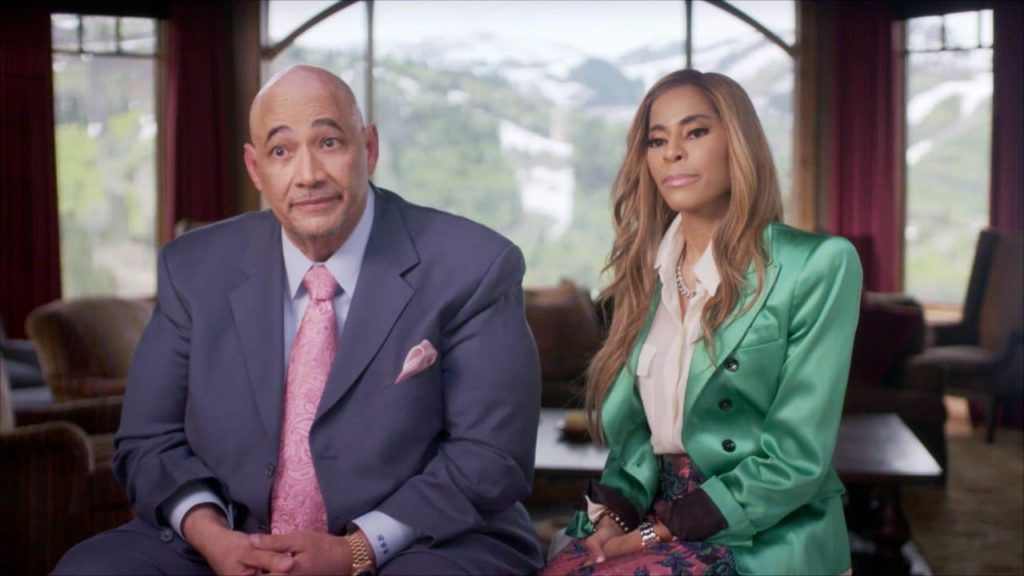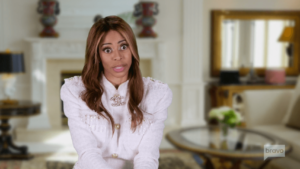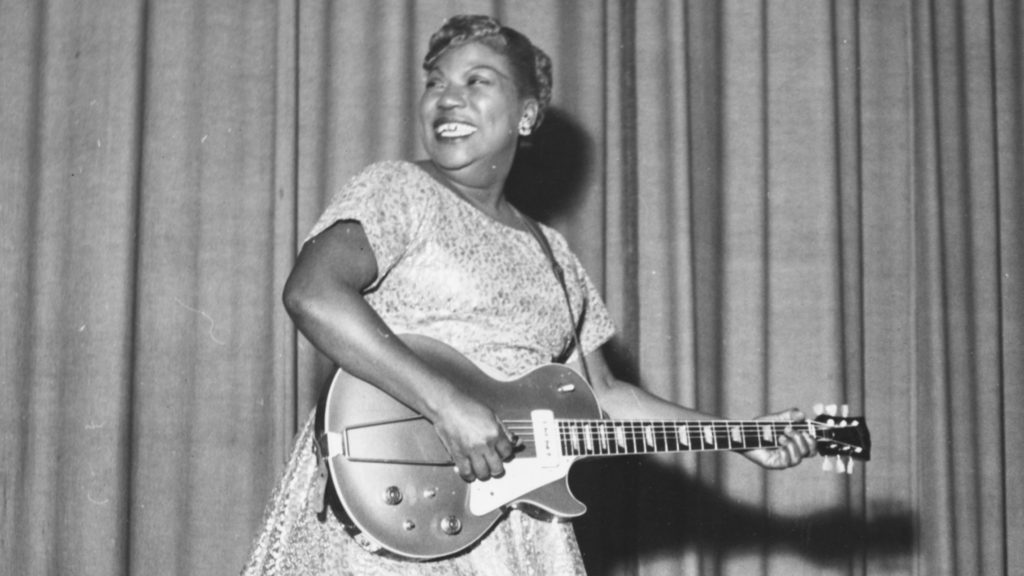Pastor Mary Cosby, Arranged Pentecostal Marriages, and the Real Housewives of Salt Lake City
The prevalence of arranged marriages in Black Pentecostal communities

Pastor Mary Cosby with her husband/former step-grandfather, Robert Cosby, Sr.
“She called me a grandfather fucker,” Mary Cosby, pastor of Salt Lake City’s Faith Temple Pentecostal Church, said of her Real Housewives co-star Jen Shah with whom she’d been in conflict since the series premiere. While Shah later admitted to hurling the statement at Cosby’s back in a fit of anger bolstered by intoxication, Season 1 episode 5 found Cosby seated opposite a different cast member turned temporary ally, Heather Gay, at a dimly lit restaurant reflecting, yet again, on the altercation. At their dinner Gay sought clarification, asking, “[your husband is] not your grandfather?”
“He’s not. No blood at all,” Cosby responded.
An emotional Cosby then relayed the details of her arranged marriage. “I did marry him [her step-grandfather]. I didn’t want to, Heather, that’s weird to me, but she [Cosby’s grandmother and his first wife] wanted it, she really did, and so I obeyed her, because I trusted every word. If she managed to bring this church this far, then she has to be right. And look at my life,” she said, gesturing at her monogrammed Louis Vuitton checkered cardigan with matching coat and pants. “You think I’m this high fashion Louis Vuitton . . . and maybe I am, but because I chose right.”
Prior to joining the Real Housewives of Salt Lake City (RHSLC for short), Mary Cosby’s reputation preceded her. Rumors surrounding her family – and especially her grandmother, the late Pastor Rosemary Cosby – and her upbringing in her grandmother’s church spread like wildfire in Utah. “Everyone in Salt Lake City knows the story about Mary and her step-grandfather,” said fellow cast member Whitney Rose.
“When grandmother left, she left me her empire,” Cosby explained. “Homes, churches, daycares, a mortgage company, and her husband.”
 According to Cosby, her inheritance came with the expectation that she marry her step-grandfather, her grandmother’s second husband who she left widowed after her death in 1997. “Before she passed she made it very clear that she wanted me to be the one to take her place in the church and inherit everything. That came with homes, money, our church and her husband . . . don’t think it wasn’t weird ‘cause it was, but I did it because I trusted my grandmother and I’m glad I did,” she insisted.
According to Cosby, her inheritance came with the expectation that she marry her step-grandfather, her grandmother’s second husband who she left widowed after her death in 1997. “Before she passed she made it very clear that she wanted me to be the one to take her place in the church and inherit everything. That came with homes, money, our church and her husband . . . don’t think it wasn’t weird ‘cause it was, but I did it because I trusted my grandmother and I’m glad I did,” she insisted.
Mary Cosby and Robert Cosby, Sr., married one year after her grandmother’s death. The new bride said it took her another year to feel certain she had made the right decision, during which time she prayed to come to grips with the arrangement.
“I’m not gonna lie. It was all bizarre,” Cosby said in episode 3. “I was 22 when we got married. It split our church. My mom had a fit because she wanted my grandmother’s place. My mom felt like she was the one that should have been marrying Robert Sr. and the wedding night was . . . everything was weird.” When a RHSLC producer asked whether they slept together on their wedding night, Cosby replied, “No. Thank goodness I was on my period. I was on my period for two weeks . . . It got awkward . . . I stretched it out. I had to get past it.”
Cosby’s confessions about her marriage to her step-grandfather, from tearful descriptions of an uncomfortable wedding night to reckoning with her grandmother’s decision decades later, brings to light a little discussed facet of some Black Pentecostal traditions: arranged and coerced marriages of young adults in their late teens and early twenties. Though Cosby’s union with her step-grandfather is unconventional, many women raised in influential Black Pentecostal families can identify with the experience of being persuaded to participate in arranged marriages, even when their betrothed reveal themselves to be abusive, manipulative, or neglectful in the long run.
***
Like Cosby, I grew up in a Black Pentecostal church and was subject to its teachings. These churches often fall under the banner of “the Sanctified Church,” a term that originated in the early twentieth century to distinguish mainline Black Protestant denominations from more peripheral traditions that incorporate Black rural folk practices. Within these congregations, “sanctification,” sometimes referred to as “holiness,” is central and refers to the sustained outward practice of Christian Pentecostal devotion. This can take several forms from avoiding alcohol and drugs to distancing oneself from activities like gambling, partying (outside of church), and listening to secular music.
Within Black Pentecostal communities, sanctification can also include adherence to patriarchal ideologies like sexual purity, abstinence from premarital sexual activity, and women’s submission to male headship in church and marriage. However, alongside this patriarchal tradition, Black Pentecostal women have always held a significant amount of institutional power, even as their rights to ordination and ministerial office vary from church to church.
In her book about Black Pentecostal women, Dr. Judith Casselberry writes that though women in the Church of Our Lord Jesus Christ (COOLJC), one of the largest Pentecostal denominations in the country, are often placed in subservient roles, their capacities as church mothers, missionaries, and teachers provide them with influence over church operations and ideologies. Women make up the majority of such congregations, and they typically develop and spread messages of female submissiveness and the importance of male-headship to other girls and women. This ultimately makes for “women-driven patriarchies.”
Against this backdrop of a divinely inspired gender hierarchy, Black women have founded a number of Pentecostal churches. Mary Cosby heads the church her grandmother founded and where she served as its inaugural pastor. But women-led Pentecostal churches are not free of patriarchal ideologies about female submission or sexual purity. In fact, the “power to submit” to male-headship has become an extraordinary mark of Pentecostal faith and belief.
“Marriage was not only about sex and procreation; it was also about one’s station in the church,” writes Dr. Anthea Butler in her history of women in the Church of God in Christ, one of the largest Black Pentecostal denominations in the world. “Arranging marriages became a way to keep prominent COGIC families in leadership positions.” One way that women gain influence in these churches is through marriage to authoritative male figures. Though the men are often significantly older, these marriages provide women with authority that they would not normally have through standard church participation.
Arranged marriages also function in Black Pentecostal communities as a way to control sexual urges. By restricting young women from casual dating and by urging them into arranged marriages, women are more likely to wed with their sexual purity intact. Consequently, arranged marriages serve the dual purpose of preventing sexual promiscuity and maintaining clerical hierarchies.
While several Black Pentecostal couples attest to the success of these arrangements, for others they have led to unhappy and, at times, physically and psychologically abusive situations. In Cosby’s case, even as she speaks of the spiritual and financial “blessings” from the marriage, she confessed to cast mate Meredith Marks that the current state of her relationship is shaky. “We became partners as opposed to marriage . . . I drifted into being a mom and he drifted into being Robert Sr.” By saying they are “partners as opposed to marriage,” Cosby is suggesting a type of union bereft of romantic engagement and emotional attachment.
Even standing in a 20,000 square foot mansion filled with Chanel, Dolce & Gabbana, and Balmain, all thanks to a hefty inheritance uncommon for most Black Pentecostal women, Cosby remains less than satisfied with her situation. And yet, for other women the results can be far more disastrous.
***
As someone who researches and writes about Black women musicians in and around the Black Pentecostal tradition, I have found several stories of teenage and young adult women being married off to influential leaders. Many of those marriages ended in unhappy or abusive situations. At times, I have been overwhelmed by documents and interviews about young Black women who were intentionally placed in marital situations that lent themselves to intimate partner violence.
Roxie Moore, a musician and composer who grew up in early twentieth century Baltimore attending services at a Pentecostal church, descriptively detailed her marital experiences in a letter to COGIC Bishop O.T. Jones in the early 1970’s. She wrote, “I married twice because the saints picked my first husband, I didn’t even know him. He was supporting a girl’s baby right in the church and nobody told me. Because of jealousy he became very violent. I couldn’t live with him. After much fasting and praying, and agonizing . . . I found that Jesus would forgive a bad or wrong marriage and wipe the slate clean.” In documentary footage, she explains that her dear friend Sister Rosetta Tharpe’s first marriage was similar, though she didn’t elaborate. These are not exceptional stories. Influential young women like Moore, Tharpe, and Cosby are often ushered into arranged marriages by church leaders who believe it is those women’s responsibility to model proper Christian behavior for the congregation.

Rosetta Tharpe in 1957
While Cosby has stayed committed to her church, many other Black Pentecostal women in arranged marriages, like Moore and Tharpe, leave their religious communities, in no small part because of the harm they face in their marriages. The abuse Moore endured at the hands of her first husband, a minister, was the initial impetus for her ecclesial departure. She left because she feared for her safety, even leaving behind her eldest daughter who she believed her husband would harm had she tried to escape with her. She ultimately went to New York where she lived with Tharpe and Tharpe’s mother, Katie Bell Nubin, until she got back on her feet.
Moore paid a price for her freedom. Though having written music for legendary gospel groups like the Dixie Hummingbirds and The Golden Gate Quartet, her detachment from church institutions contributed to the erasure of her contributions from gospel music history. This is but one example of how Black Pentecostal leaders have silenced the voices of Black women dissenters, and it demonstrates how these leaders have allowed intimate partner violence and sexual abuse to continue unaddressed. Because of this, we have not heard enough of the voices, stories, and work of marginalized women. It places Black women in an impossible position: either conform to the given marital standards at the risk of less than ideal domestic situations like Cosby, or leave the church and have your work and contributions obscured like Moore.
***
The arranged marriage pipeline within Black Pentecostal communities has had a devastating effect on many. While stories of sexual impropriety occur in countless religious spaces, we must ask ourselves why the multitude of stories of Black girls and young women in damaging marriages has been swept under the rug. Unfortunately, instead of engaging Mary Cosby’s story with care for a young woman placed in a difficult position, her marriage — to cast and audience members alike — is often nothing more than an easy punch line and handy insult.
If Cosby’s childhood resembled mine, she grew up with teachings that pointed her towards marriage as the end goal for Godly women. When considering the influence of a grandmother that groomed her for succession, the potential of a massive inheritance, and a deep religious devotion that privileges marital commitment, I can empathize with Cosby’s decision to carry out her grandmother’s wishes. Even amongst smaller Black Pentecostal congregations with fewer financial holdings, arranged marriages are common. However, instead of ridiculing or blaming women for ending up in these situations, we should have empathy for those coerced into unhealthy unions under the guise of religious devotion.
Although there are cases where arranged marriages have led to successful lifelong partnerships with both parties expressing happiness and fulfillment, one cannot afford to ignore the amount that end in incompatibility, neglect, and abuse. It is devastating to consider the spiritual implications of believing that a harmful marriage is better than no marriage at all, and that the “blessings” of mediocre attachment supersede that of solitude. For those who submit their lives to religious adherence, arrangements that end in broken marriages cause more than heartbreak. They also lead to feelings of unworthiness and even unholiness. Pentecostal churches must amend teachings that ask young women to prove their faith by committing themselves to men who may not have their best interests at heart.
Mary Cosby’s repeated oscillations between disenchantment with her arranged marriage and contentment with the material “blessings” she inherited shows the complexity of such relationships. These mindsets are not cultivated instantaneously, but through lifelong church lessons that associate marriage with prosperity, favor, and high standing. We must re-examine messaging that tells women our worth is linked to heterosexual marital unions, and that our faith is somehow tainted by remaining single. But more importantly, we need to protect Black women from leaders and institutions that would rather see us abused, neglected, or silenced, than actively working to change the status quo by resisting traditions that lead to our demise.
Ambre Dromgoole is a Ph.D. Candidate in the combined program in African American Studies and Religious Studies at Yale University and a Sacred Writes/Revealer Writing Fellow. Her dissertation is tentatively titled “There’s a Heaven Somewhere’: Itinerancy, Intimacy, and Performance in the Lives of Gospel Blues Women, 1915-1983.”
***
This article was made possible in part with support from Sacred Writes, a Henry Luce Foundation-funded project hosted by Northeastern University that promotes public scholarship on religion.